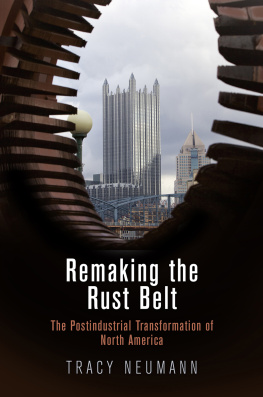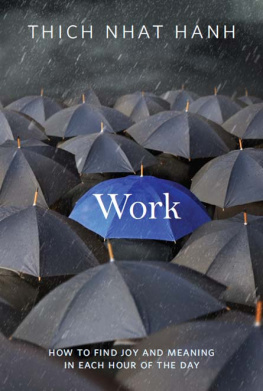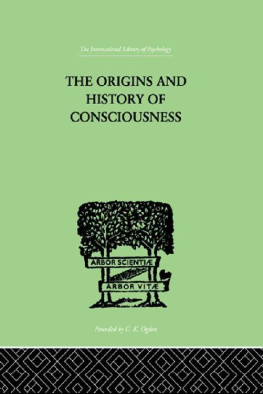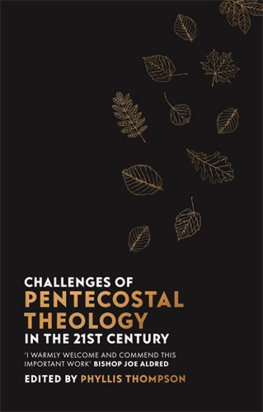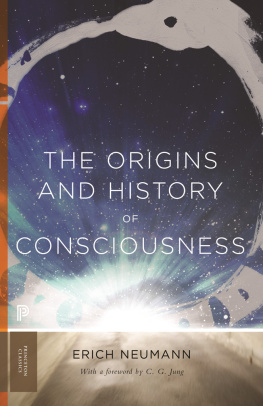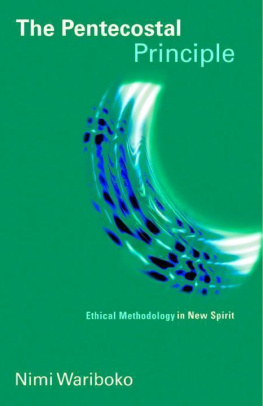Neumann - Pentecostal Experience: An Ecumenical Encounter (Princeton Theological Monograph Series)
Here you can read online Neumann - Pentecostal Experience: An Ecumenical Encounter (Princeton Theological Monograph Series) full text of the book (entire story) in english for free. Download pdf and epub, get meaning, cover and reviews about this ebook. year: 2012, publisher: Pickwick Publications, an Imprint of Wipf and Stock Publishers, genre: Religion. Description of the work, (preface) as well as reviews are available. Best literature library LitArk.com created for fans of good reading and offers a wide selection of genres:
Romance novel
Science fiction
Adventure
Detective
Science
History
Home and family
Prose
Art
Politics
Computer
Non-fiction
Religion
Business
Children
Humor
Choose a favorite category and find really read worthwhile books. Enjoy immersion in the world of imagination, feel the emotions of the characters or learn something new for yourself, make an fascinating discovery.

Pentecostal Experience: An Ecumenical Encounter (Princeton Theological Monograph Series): summary, description and annotation
We offer to read an annotation, description, summary or preface (depends on what the author of the book "Pentecostal Experience: An Ecumenical Encounter (Princeton Theological Monograph Series)" wrote himself). If you haven't found the necessary information about the book — write in the comments, we will try to find it.
Neumann: author's other books
Who wrote Pentecostal Experience: An Ecumenical Encounter (Princeton Theological Monograph Series)? Find out the surname, the name of the author of the book and a list of all author's works by series.
Pentecostal Experience: An Ecumenical Encounter (Princeton Theological Monograph Series) — read online for free the complete book (whole text) full work
Below is the text of the book, divided by pages. System saving the place of the last page read, allows you to conveniently read the book "Pentecostal Experience: An Ecumenical Encounter (Princeton Theological Monograph Series)" online for free, without having to search again every time where you left off. Put a bookmark, and you can go to the page where you finished reading at any time.
Font size:
Interval:
Bookmark:
An Ecumenical Encounter
Peter D. Neumann

PENTECOSTAL EXPERIENCE
An Ecumenical Encounter
Princeton Theological Monographs Series
Copyright 2012 Peter D. Neumann. All rights reserved. Except for brief quotations in critical publications or reviews, no part of this book may be reproduced in any manner without prior written permission from the publisher. Write: Permissions, Wipf and Stock Publishers, W. th Ave., Suite , Eugene, OR 97401 .
Pickwick Publications
An Imprint of Wipf and Stock Publishers
W. th Ave., Suite
Eugene, OR 97401
www.wipfandstock.com
ISBN : -- 61097 -
EISBN 13: 978-1-63087-014-0
Cataloging-in-Publication data:
Neumann, Peter D.
Pentecostal experience : an ecumenical encounter / Peter D. Neumann.
Princeton Theological Monographs Series
xii + p. ; cm. Includes bibliographical references and index.
ISBN : -- 61097 -
. PentecostalismDoctrines.. Chan, Simon.. Macchia, Frank D., 1952 .. Yong, Amos.. TheologyMethodology. I. Title. II. Series.
BT N 2012
Manufactured in the U.S.A.
Princeton Theological Monograph Series
K. C. Hanson, Charles M. Collier, D. Christopher Spinks, and Robin Parry, Series Editors
Recent volumes in the series:
Sammy Alfaro
Divino Compaero: Toward a Hispanic Pentecostal Christology
David L. Balch and Jason T. Lamoreaux, editors
Finding A Womans Place: Essays in Honor of Carolyn Osiek
Paul W. Chilcote
Making Disciples in a World Parish: Global Perspectives on Mission & Evangelism
Eric G. Flett
Persons, Powers, and Pluralities: Toward a Trinitarian Theology of Culture
Vladimir Kharlamov
Theosis: Deification in Christian Theology, Volume Two
Mitzi J. Smith
The Literary Construction of the Other in the Acts of the Apostles: Charismatics, the Jews, and Women
Jon Paul Sydnor
Ramanuja and Schleiermacher: Toward a Constructive Comparative Theology
Philip D. Wingeier-Rayo
Where Are the Poor?: A Comparison of the Ecclesial Base Communities and PentecostalismA Case Study in Cuernavaca, Mexico
To Sharon,
whose love and sacrifice made this book possible
I was raised in the Pentecostal tradition, appreciating the vibrancy of its spirituality and openness to the experience and activity of the Spirit in church and personal life. This spirituality also included, among other things, an emphasis on Scripture as the authority for Christian life and practice, and this emphasis was only reinforced when I went to train for pastoral ministry at Eastern Pentecostal Bible College (now Masters College and Seminary). Later I began graduate work at Wycliffe College within the ecumenical atmosphere of the Toronto School of Theology. There I was exposed to people and ideas from a number of other Christian traditions, which began to help me value the diversity of ways that Christians approached their faith and experience of God, as well as their understanding and interpretation of Scripture. In particular, courses with David A. Reed on Pentecostal and charismatic theology, and Brian J. Walsh on postmodernism served to challenge me to think more critically about the relationship between Pentecostal experience, Scripture, and the function of authority within Pentecostalism. Still later, during my doctorate work at Wycliffe College, I was introduced to postliberal theology in the work of George A. Lindbeck and the late George P. Schner. Through this I grew in appreciation for the ways in which theological understanding and doctrine, and indeed experience of God, is shaped and mediated by the traditions and (sub)cultures in which we find ourselves.
All of these factors led me to begin asking deeper questions about the nature of Pentecostal experience and the authority it bears within Pentecostal theology. I knew that Pentecostals looked to Scripture as their authority, but also that their experiences with the Spirit reciprocally influenced the ways in which they understood Scripture. Now, however, things were becoming even more complex! It began to dawn on me that the very Pentecostal theological and spiritual tradition in which I had been raised actually served to shape the ways that those within that tradition were experiencing the Spirit. I had grown up assuming that experience of the Spirit was more or less direct or immediate, but now it was becoming clear that other theological and cultural factors were influencing my experience of God. Further, it appeared that these factors were operating more or less unacknowledged, but nevertheless authoritatively, within my own Pentecostal tradition and the shaping of its theology and doctrine. I began to wonder whether a more nuanced view of experience of Godone that more explicitly acknowledged the mediated nature of experiencemight produce some theological fruitful results for Pentecostalism itself, in particular its ability to grow in its self-understanding and interaction with the broader ecumenical Christian community. All of this has served as impetus for the focus of this book, which is a slightly revised version of my PhD thesis (successfully defended in 2010 at the University of St. Michaels College), entitled, Encountering the Spirit: Pentecostal Mediated Experience of God in Theological Context.
In completing an undertaking of this sort, there are a number of people who deserve acknowledgment and thanks. David A. Reed, who was my thesis director, has been a theological guide and mentor to me for many years. From him I have learned not only a greater appreciation for my own Pentecostal tradition, but also the value of patiently taking the time to really listen to what those from other traditions are saying, and how they are saying it, in order to move toward understanding. His thoughts, questions, and keen eye for detail have been extremely valuable in helping me complete this project. Harold G. Wells suggested that I should consider expanding on a paper submitted in one of his courses, comparing Pentecostal and Jrgen Moltmanns respective approaches to the experience of God. That encouragement factored significantly in the formulation of my PhD thesis (and ultimately this book). Additionally, I want to thank my friend, Randall (Randy) Holm, for reading over the manuscript of this book, and offering encouragements as well as suggesting possible directions for future explorations based on this study. I am, of course, also deeply indebted to the three Pentecostal theologiansFrank D. Macchia, Simon K. H. Chan, and Amos Yongwhose work served not only to provide respective case studies for this book evidencing a growing sophistication within Pentecostal theology, but has also inspired and challenged me to imagine new possibilities for theology rooted in the Pentecostal tradition.
The members of my family have also been immensely supportive during my doctorate work and the completion of this book. I am thankful for each one, and love them very much. My son, Nathanael, and daughter, Mikayla, are truly blessings from God (and growing up far too quickly!). Sharon, my wife, has my deepest gratitude. Her love, sacrifice, and encouragement (and patience!) has made this project possible, and I am honored to be sharing life together with her. Finally, I am immensely thankful for and overwhelmed by the graciousness of the Lord for enabling me to undertake and complete this work. It is my sincere hope and prayer that this study will serve to contribute to the building up of the church, to the glory of God.
The Question of Experience in Pentecostal Theology
Font size:
Interval:
Bookmark:
Similar books «Pentecostal Experience: An Ecumenical Encounter (Princeton Theological Monograph Series)»
Look at similar books to Pentecostal Experience: An Ecumenical Encounter (Princeton Theological Monograph Series). We have selected literature similar in name and meaning in the hope of providing readers with more options to find new, interesting, not yet read works.
Discussion, reviews of the book Pentecostal Experience: An Ecumenical Encounter (Princeton Theological Monograph Series) and just readers' own opinions. Leave your comments, write what you think about the work, its meaning or the main characters. Specify what exactly you liked and what you didn't like, and why you think so.

